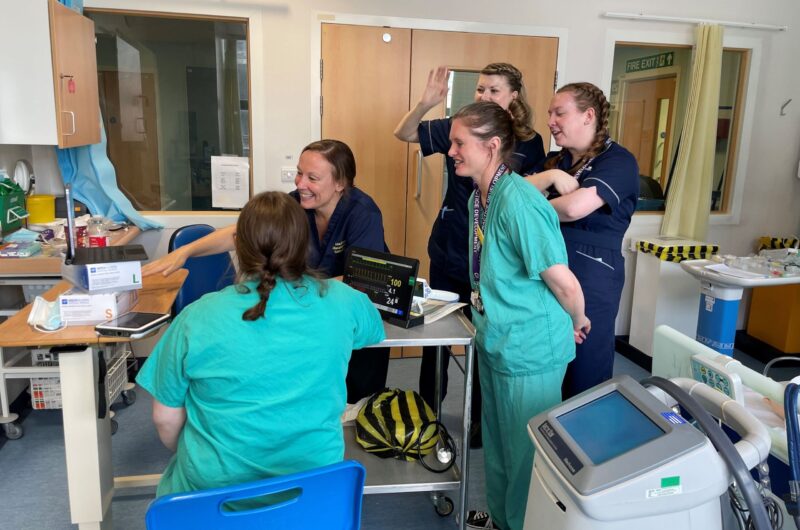A team of Cambridge University Hospitals Trust (CUH) critical care nurses, led by Education Lead Lisa Enoch, are the recipients of a CGHP sponsored award in recognition of International Day of the Nurse 2024.
The award acknowledges their ongoing work with partners in Uganda, to develop and share best practice in critical care in both the UK and Uganda. The CUH critical care nursing team have been instrumental in jointly planning and co-delivering simulation training, bedside teaching and remote support with nursing staff at Mulago National Referral Hospital and other national and regional referral hospitals in Uganda.
“Working with resource-limited areas is extremely rewarding and humbling and allows us to share our skills and knowledge in a meaningful way. It is a two-way exchange as we are learning so much from Uganda,” explains Lisa.
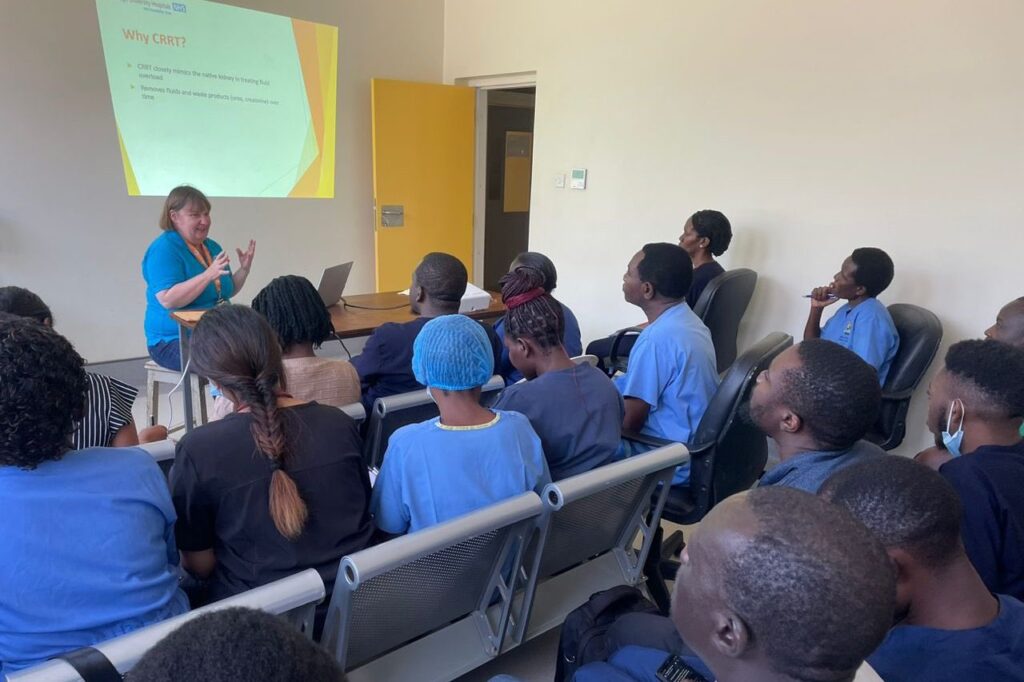
The vital role of nurses
Being able to access critical care is a vital part of healthcare systems, but it’s a huge challenge for low- and middle-income countries. Uganda faces a high burden of critical illness, but limited capacity to provide intensive care. The CGHP-supported SCALE Critical Care health partnership is building the skills and confidence of doctors and nurses to better manage the safety and care of patients in both Uganda and the UK. Nursing staff in both countries play a vital role in this, working in-person and remotely to co-deliver peer to peer bedside and classroom teaching, simulation training and ongoing advice.
“Their willingness to learn made me rediscover the passion and the love I have for teaching and educating staff,” explains critical care nurse and educator Celeste Formenton. “It shows how important education is because it wasn’t just them who learned something from us; we learned from them and then brought it back here, into our unit and then into our practice.”
By listening closely to the challenges faced by Ugandan staff and capitalising on their strengths, the CUH critical care nursing team members, together with Ugandan faculty, are beginning to implement sustainable and lasting changes. This is improving practice and patient outcomes in Uganda, and the personal and professional development gained by Lisa and the team is also being put into practice back home as they inspire and engage fellow NHS staff with fresh perspectives and ideas.
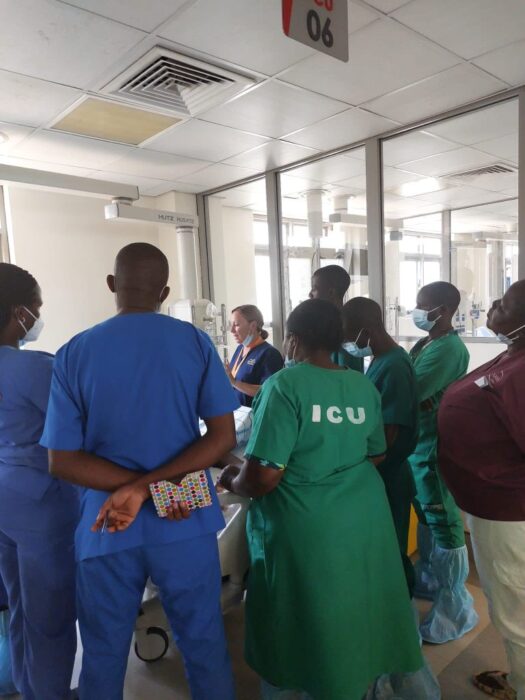
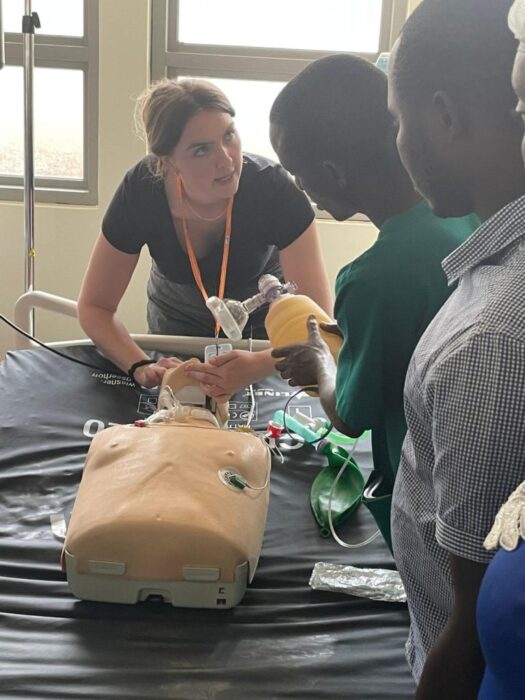
Personal and professional impact
After the UK team’s most recent visit to Uganda, critical care nurse Gayle Brunskill stayed for a month, to begin to embed the learning following a week of intense peer to peer teaching and training. Gayle was led by the needs of the Ugandan staff, working alongside them to provide advice and guidance on the practices and processes most possible to improve.
This experience has been invaluable in learning how to teach in different environments, and how to adapt both herself and her practice accordingly. “My experience in Uganda has got me thinking about whether our medical practices are necessarily always best and the other practices we can learn from,” she explains. “The month-long placement also opened up lots of conversations with other nurses on the unit at CUH about how things are done in other places and has inspired them to get involved.”
In terms of the beneficial impact on the Addenbrooke’s team and the profession more broadly, Lisa wholeheartedly agrees. “As a profession, we are struggling to recruit and retain staff. If we can offer opportunities to give nurses some space and to work with international staff I believe this will be not only be a huge motivational and retention tool, it will allow us to develop as professionals and will impact on the care we give and how we support each other as a team. I look forward to watching our nurses grow as they work with Uganda.”
With more remote teaching between Cambridge and Uganda teams underway this month and another nursing visit to Uganda planned for later this year, the progress being made demonstrates the impact that health partnerships can have when they are built on mutual trust, respect and an eagerness to learn from one another.
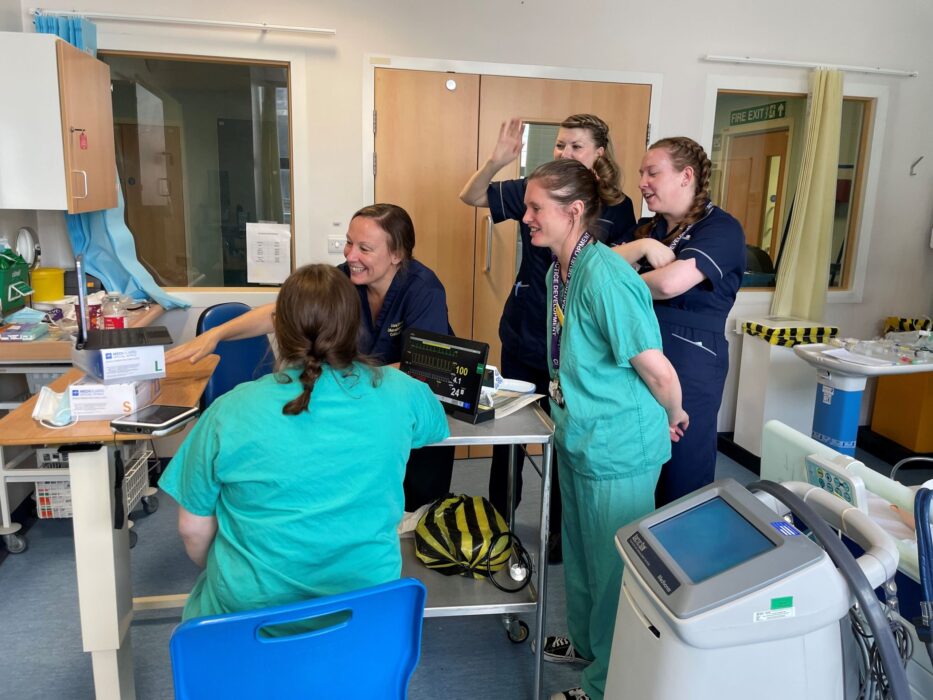
Return to news

